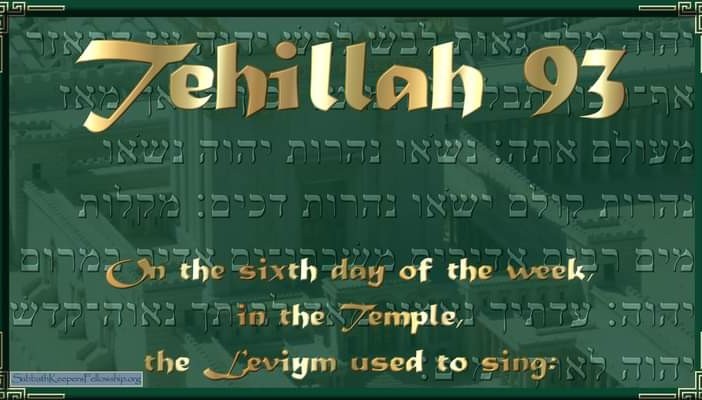Watch
Events
Articles
Market
More
https://www.bitchute.com/video/1s6tm7fNRyAs/



STRESS
A healing prayer to help you overcome stress
References:
1 Peter 1:7 --- Psalm 55:22 --- Psalm 46:1 --- 1 John 4:18 --- Psalm 121:7-8 --- Psalm 56:3-4, 9 --- Romans 8:31, 38-39 --- Isaiah 41:10 --- Philippians 4:6-7 --- Proverbs 3:5-6 --- John 15:16
Healing Promise:
“Casting all your care upon Him, for He careth for you.” (1 Peter 5:7)
Healing Prayer:
Heavenly Abba, during this stressful time in my life, I feel so fortunate to know that Your invitation to cast all my cares upon You is still open to me, because You truly do love me and care for me. Therefore, I cast my burdens and cares upon You now. I let go of them and release them all to You and I believe Your are sustaining me. Thank You my mighty YHVH. You are my refuge and my strength, a very present help to me during this time. Therefore, I will not fear. In fact, Your perfect love for me is casting out all fear from my life. Thank You Abba. Thank You for preserving me from all evil and for preserving my soul. I trust You to preserve my going out and my coming in from this time forth and even for evermore. During this season of stress, I will trust in You dear YHVH. I will praise Your Word for I have put my complete trust in You. Therefore, I will not fear and I will not be anxious any more. As I cry unto You dear Abba, I know that all my enemies are turning back. I know this because I know You are for me. Realizing that You are truly for me, I know that nothing can be against me. Hallelujah! Help me to see more clearly than I have ever seen before that nothing shall be able to separate me from Your love which is in Moshiach Yeshua, my Adonai. Thank You for always being with me O YHVH and for strengthening me. You are helping me, even as I pray and I know You are upholding me with the right hand of Your righteousness. I am committed to trust You completely Abba and not to be worried or anxious about anything. I will make my requests to You and I know that Your peace, which surpasses all understanding, will keep my heart and my mind in Moshiach Yeshua. I will trust in You with all my heart and acknowledge You in all my ways Abba and I know You will direct my paths. Thank You Abba, for helping me to be free of all unhealthy stress. In Yeshua’ Name I pray, amein.”



Sabbath Keepers Fellowship & Prison Ministry
Min Hazaqen Torah Study Group on Facebook
Christi Banks
Yochanan Ben Yisrael
14 Va’eira – Day 6
Sh’moth 8:23-9:16
“And I shall put a ransom between My people and your people. Tomorrow this sign shall be.”’”
And YHWH did so, and thick swarms of flies came into the house of Pharaoh, and into his servants’ houses, and into all the land of Mitsrayim, and the land was ruined because of the swarms of flies.
Pharaoh then called for Mosheh and Aharon, and said, “Go, slaughter to your Elohim in the land.”
And Mosheh said, “It is not right to do so, for we would be sacrifice the abomination of the Mitsrites to YHWH our Elohim. See, if we slaughter the abomination of the Mitsrites before their eyes, would they not stone us?
“Let us go three days’ journey into the wilderness, then we shall slaughter to YHWH our Elohim, as He commands us.”
And Pharaoh said, “I am letting you go, then you shall slaughter to YHWH your Elohim in the wilderness. Only, do not go very far away! Pray for me.”
And Mosheh said, “See, when I leave you I shall pray to YHWH, and tomorrow the swarms of flies shall depart from Pharaoh, from his servants, and from his people. But do not let Pharaoh again deceive, not to let the people go to slaughter to YHWH.”
And Mosheh went out from Pharaoh and prayed to YHWH.
And YHWH did according to the word of Mosheh and removed the swarms of flies from Pharaoh, from his servants, and from his people. Not one remained.
But Pharaoh hardened his heart at this time too, and did not let the people go.
And YHWH said to Mosheh, “Go in to Pharaoh and speak to him, ‘Thus said YHWH Elohim of the Hebrews, “Let My people go, so that they serve Me.
“For if you refuse to let them go, and are still holding them, see, the hand of YHWH is on your livestock in the field, on the horses, on the donkeys, on the camels, on the cattle, and on the sheep – a very grievous pestilence.
“And YHWH shall separate between the livestock of Yisra’ěl and the livestock of Mitsrayim, and let no matter die of all that belongs to the children of Yisra’ěl.”’”
And YHWH set an appointed time, saying, “Tomorrow YHWH is going to do this word in the land.”
And YHWH did this word on the next day, and all the livestock of Mitsrayim died, but of the livestock of the children of Yisra’ěl, not one died.
Then Pharaoh sent, and see, not even one of the livestock of Yisra’ěl was dead. But the heart of Pharaoh was hardened, and he did not let the people go.
And YHWH said to Mosheh and Aharon, “Fill your hands with ashes from a furnace and let Mosheh scatter it toward the heavens before the eyes of Pharaoh.
“And it shall become fine dust in all the land of Mitsrayim, and it shall cause boils that break out in sores on man and beast in all the land of Mitsrayim.”
So they took ashes from the furnace and stood before Pharaoh, and Mosheh scattered them toward the heavens. And they caused boils, breaking out in sores on man and beast.
And the magicians were unable to stand before Mosheh because of the boils, for the boils were on the magicians and on all the Mitsrites.
But YHWH strengthened the heart of Pharaoh, and he did not listen to them, as YHWH had said to Mosheh.
And YHWH said to Mosheh, “Rise early in the morning and stand before Pharaoh, and say to him, ‘Thus said YHWH Elohim of the Hebrews, “Let My people go, so that they serve Me, for at this time I am sending all My plagues unto your heart, and on your servants and on your people, so that you know that there is no one like Me in all the earth.
“Now if I had stretched out My hand and struck you and your people with pestilence, then you would have been cut off from the earth.
“And for this reason I have raised you up, in order to show you My power, and in order to declare My Name in all the earth.




Sabbath Keepers Fellowship & Prison Ministry
Min Hazaqen Torah Study Group on Facebook
Christi Banks
Yochanan Ben Yisrael
Tehillah 93 – Day 6 (Yom Shishy)
YHWH shall rule, He shall put on excellency; YHWH shall put on strength; He shall gird Himself. Indeed, the world is established, immovable.
Your throne is established from of old; You are from everlasting.
Rivers shall lift up, O YHWH, Rivers shall lift up their voice; Rivers lift up their breakers.
YHWH on high is mightier Than the noise of many waters, The mighty breakers of the sea.
Your witnesses have been very trustworthy. Set-apartness befits Your house, O YHWH, forever.




Live at 7:30 Eastern time, This Is Not About The End Of The World. Listen where you get your favorite podcasts, use the player on our homepage or here https://www.spreaker.com/show/....give-god-90-episode- With a free account you can join the chat or leave a message, please consider liking and sharing these podcasts.




"Wise as serpents" in Matthew 10:16 doesn't use the normal Greek word for wise, but phronimos, which probably implies an awareness of the hazards and schemes of others rather than scheming of one's own.
Wary as serpents and uncomplicated as doves. In other words, be wary of the cunning of unbelievers but don't emulate them. Deal honestly with all, don't take the offensive, and don't engage in dishonest political maneuvering. Verses 17-20 explain what Yeshua meant.


